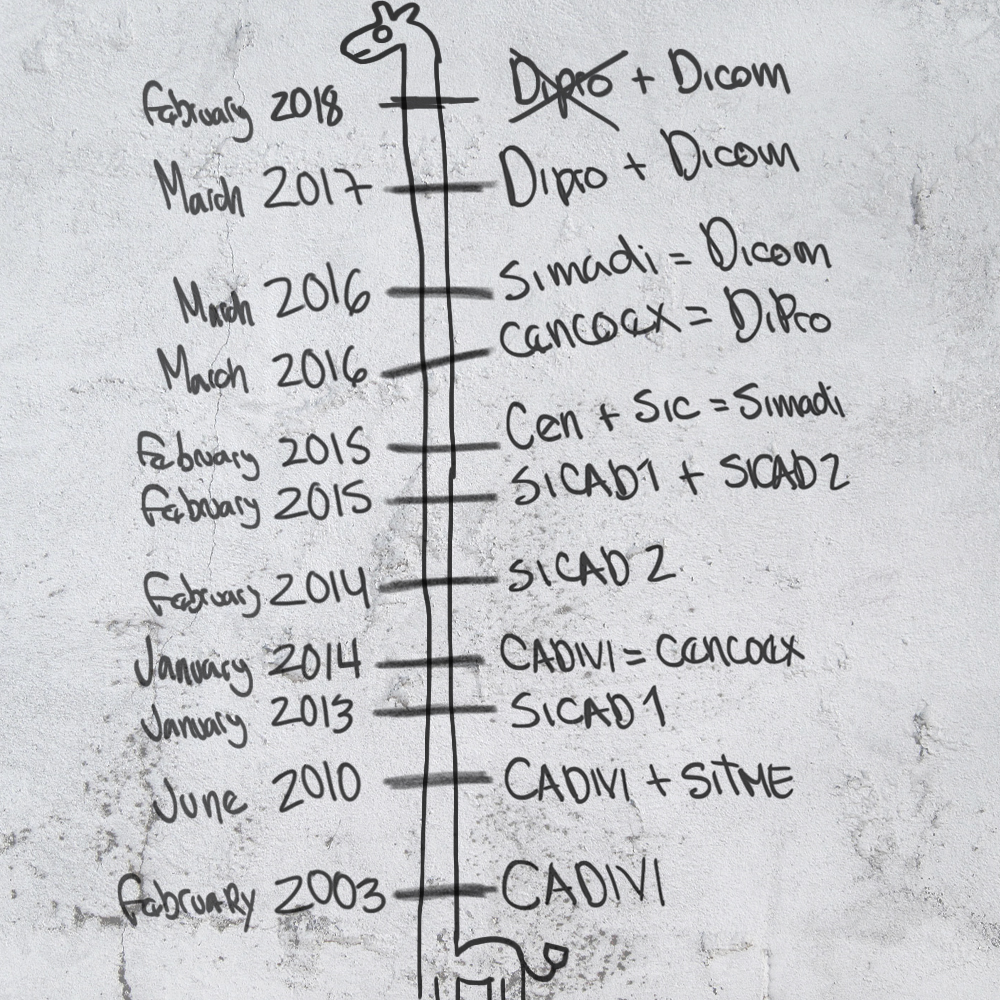FX Controls: A Tragedy Turns Fifteen
Tal día como hoy, in 2003, Venezuela began rationing foreign currency by fixing its price. Has any other policy done more to ravage Venezuelans’ livelihoods?


Photo: Proeconomía
Yesterday afternoon, the Venezuelan Central Bank released a statement that sets a new official exchange rate: Bs. 30,897.50 per euro. A little over Bs. 25,000.00 per dollar.
This devaluation, which came just in time for the 15th anniversary of exchange controls, means that each bolivar we have in our pockets lost 86.62% of its value at the Dicom exchange rate in a little over five months. (In de verdad, verdad terms, it lost much more than that.)
It all began in the aftermath of the collapse of the 2002-2003 Paro Petrolero, with Hugo Chávez shouting that there won’t be “a single dollar for golpistas” (as Naky reminds us), establishing the discretionary nature of the now infamous control regime.
And while the government perfected its tongue-twisting game by giving each new official allocation system a weirder name than the one before, the price distortion kept on growing with all its negative incentives, like a cancerous cell birthed and fed by chavismo.
First there was Cadivi;
Then it was Cadivi + Sitme;
Sitme died and Sicad 1 was born;
And little after Cadivi became Cencoex,
Sicad 2 came on board;
Then Sicad 1 and 2 were unified;
Cencoex and the Unified Sicad later had Simadi;
Cencoex became DIPRO;
Simadi became DICOM;
DIPRO + DICOM came next;
And today DIPRO is no more and DICOM survives (for now).
But in the words of Juan Nagel, “while the economics of CADIVI were ghastly, its politics were sheer chavista genius.” Throughout the critical years when chavismo was building a stranglehold on the regime, currency controls took the edge of political opposition, showering consumption goods on a population only too glad to make off with its share of the piñata.
To commemorate the 15th anniversary of this nightmare, we wanted to make a cake but we frankly couldn’t find any of the ingredients. There aren’t enough dollars around to import them.
Instead, let’s take a minute to, for the second year in a row, go through our Cadivi Diaries and remember what 15 years of foreign exchange controls have done to Venezuela.
Caracas Chronicles is 100% reader-supported.
We’ve been able to hang on for 22 years in one of the craziest media landscapes in the world. We’ve seen different media outlets in Venezuela (and abroad) closing shop, something we’re looking to avoid at all costs. Your collaboration goes a long way in helping us weather the storm.
Donate





